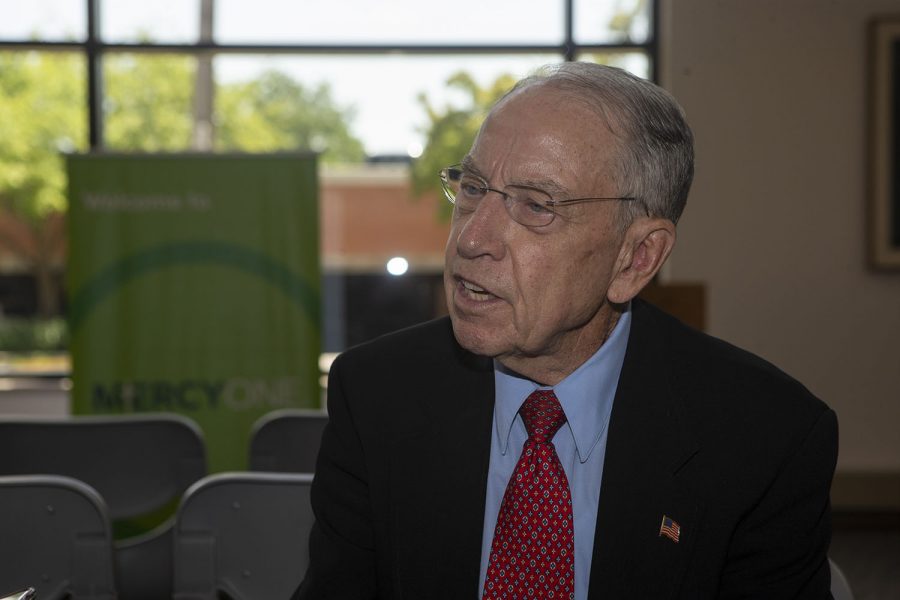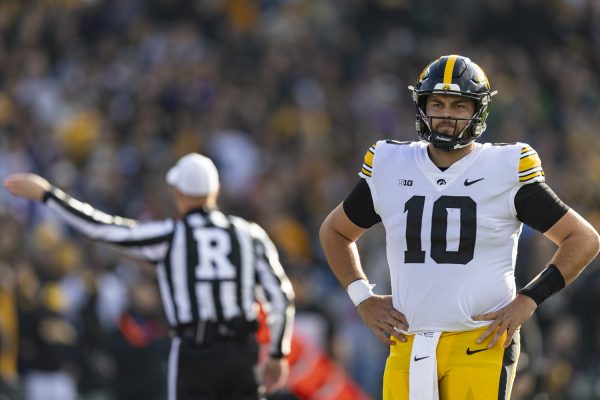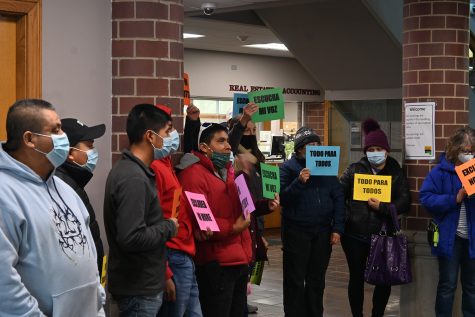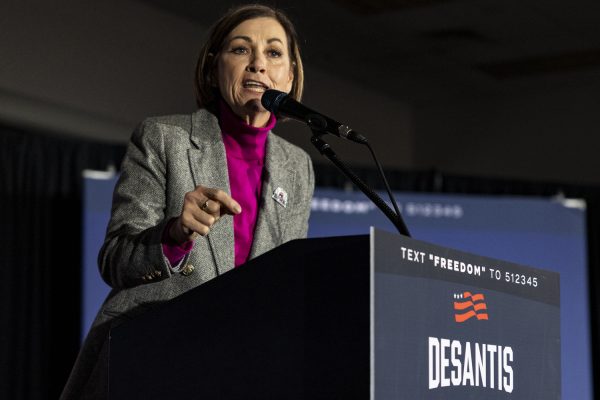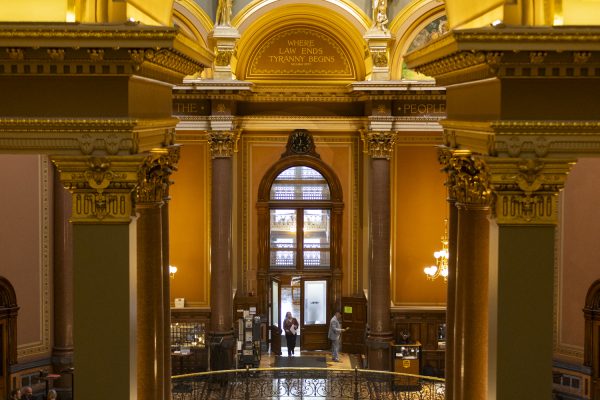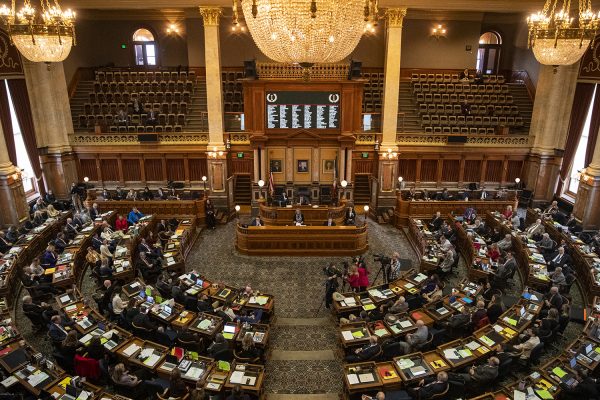Federal unemployment assistance will be reduced in phase four coronavirus relief bill, Grassley says
Sen. Chuck Grassley, R-Iowa, provided details on the contentious phase four coronavirus relief bill that is causing infighting among Republican leadership.
U.S Senator Chuck Grassley, R-Iowa, speaks with the Daily Iowan staff after a visit to Mercy Hospital on July 2, 2019.
July 22, 2020
Federal unemployment assistance will likely continue in Congress’s phase four coronavirus relief package, but it will be reduced from the current mark of $600 a week, according to Sen. Chuck Grassley, R-Iowa.
Grassley held a press call with reporters Wednesday where he discussed the details of the package that has been a point of contention between Republican leaders in the Senate.
“There’s going to be some continuation of unemployment in addition to what each state gives,” said Grassley, the chairman of the Senate Finance Committee. “It won’t be $600. There’s no way I can predict to you what sort of a compromise might work out, but there’s going to be some.”
The $2.2 trillion CARES Act, signed by President Trump in March, provided $600 a week in federal unemployment assistance on top of state unemployment benefits, but those payments are set to expire at the end of this week.
Grassley said the $600 assistance is making it difficult for small businesses to rehire employees that have been laid off and are now making more money on unemployment than they would if they returned to work.
Republicans are fractured on how to allocate funds for the bill that is gaining an increasingly high price tag. The Trump administration is pushing for a payroll tax cut, but Congress leaders, including Grassley, are skeptical of the measure’s effectiveness.
The Washington Post reported that Senate leaders and White House officials clashed over the effect of a phase four bill on the national debt at a senate lunch on Tuesday, and some worried that spending both too much or too little could hurt the Republican majority come November.
Architects of the bill are hoping to keep the cost around $1 trillion, though the Post reported Treasury Secretary Steven Mnuchin had ditched that figure by Tuesday. Grassley said the recent spike in coronavirus cases around the country implies that the problem the virus poses is not going away, and it justifies high spending.
“People are going to have to understand that this increase in the virus hasn’t lessened the need for what we’re doing, even though it’s a lot less than what we’ve done in the past at $1 trillion, because we’ve had this spike, and it’s still a major problem,” he said in the press call.
Grassley said in the call that a payroll tax cut would not provide a noticeable boost to voters, who he said would only see $30-$40 extra on their paychecks. He also worried the IRS wouldn’t be able to implement the cuts until October.
He said direct payments would put more money in people’s pockets and encourage spending more than a payroll cut. Republicans are in agreement that a second round of payments will be in the upcoming bill, but the amount of the payments, and who will receive them, has not been ironed out.
“If you get a check, like $1,200, or even something less than $1,200, to the same people again, most people are probably going to spend it,” he said. “If they don’t spend it, they’re at least going to know they’re getting it.”



